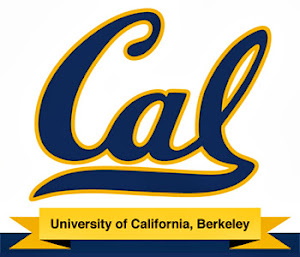"I will respect the privacy of my patients, for their problems are not disclosed to me that the world may know." - Hippocratic Oath
When determining who to vote for as President of the United States, do the citizens have the "right to know" the detailed health status of the candidates? In this special situation, many ethical and political implications cloud the usually clear and highly-respected confidential relationship between physician and patient. A President's medical concerns could have serious consequences for both America and the world. Does the significance of the President's role in so many lives justify the complete elimination of the President's medical privacy? Does becoming President invalidate the President's right to medical privacy? And if so, where is that grounded in the law? Without a clear standard for disclosure, the privacy of candidates for president fall victim to the unpredictable whims of society. What is more important: ethics or politics?
Why does privacy matter?
The privacy of a patient’s medical records matters for several reasons:
1. Right to privacy – As evidenced by the Hippocratic Oath, history has treated medical information as a private matter worthy of protection. In 1996, the US extended this protection when it passed HIPPA, which set national standards for protecting medical records and personal health information and put limits on how and when this information can be used.
2. Efficient and Accurate Diagnoses -- A patient's confidence in the right to privacy is critical for full and honest patient disclosure. Without a protected right to privacy, patients would be more likely to withhold important medical and personal information from their doctors for fear of negative consequences of disclosure (such as their sexual or mental health history, drug use etc.)
3. Stigma -- Many diseases and health conditions are highly stigmatized by society. It is important to protect patients from the wrath of a judgmental society. People struggling with health conditions should not be forced to be a martyr for their illness.
4. Human Genome Project -- With constantly developing genetic technology, it might become possible to predict with reasonable accuracy a person’s future health outcomes based on that person’s DNA. If medical records for Presidential candidates are open to the public, citizens could chose their president based in part on genetic make up. If elections were determined this way, would FDR have ever been elected to office -- let alone elected to the Presidency three times? Genes may predict future health conditions, but they are not likely to predict with any accuracy the effectiveness of our country's leaders.
Extremes
History is littered with the extremes of both sides of this debate. President Ronald Reagan had his colonoscopy broadcasted on network television for all of America to watch. Despite this initiate openness regarding his health, President Reagan was later furious when his doctor, post-colorectal surgery, said that he "has cancer" instead of "had cancer."
During President Clinton's candidacy, he refused to disclose his medical records until after the election. He asserted that asking for the medical records of the President is a much more legitimate request than of candidates. An article in The New York Times accused President Clinton of being "less forthcoming about his health than any Presidential nominee in the past 20 years," an accusation that sounds to me like coercion.
Limitations on privacy
There are, of course, two sides to every coin. The right to privacy has some recognized limitations including:
1. Infectious Disease - If a patient has a serious infection that could be the beginning of an epidemic, doctors must inform the authorities (CDC and other relevant agencies) to prevent a public health crisis.
2. Threat to oneself or others -- If a clinical psychologist’s patient threatens harm to the patient or others, the doctor must [report this to the proper authorities to prevent bodily harm.
If the Commander-In-Chief of one of the largest militaries in the world has a medical condition that may result in poor judgment, doesn't that pose a threat to "the lives of others?" Under this stipulation then, doesn't the doctor not only have the right to but the obligation to disclose the President's personal medical information, at least if it could affect cognition or judgment? This needs further investigations to set a standard, grounded in the law, for medical disclosure.
Today's Campaign
Very recently the public found out that Candidate Michelle Bachmann takes medication for migraines. The media immediately began asking whether this would affect her ability to lead the nation. People wanted to know which medications she has been prescribed, how often she takes them, the severity of her headaches -- the list goes on and on. We need a legal basis to determine whether Presidential candidates must disclose some or all of their medical information. The standard should not be an ad hoc one based on mass-media and public demand. Candidates should not be coerced into disclosing. Instead, we should have thoughtful debate and develop a policy to deal with this situation. Of course, a candidate could always choose to disclose more than was required by law.
As a nation, we need to decide what is more important in this situation - ethics or politics. We need the collaborative input of the public health community, the legal community and those involved in politics. The elected officials passed legislation to protect our right to privacy. Isn’t it time to protect theirs?
*********
About the Author: Cecilia Bonaduce studies Public Health with a concentration in infectious disease at UC Berkeley. As Chief Blog Editor of PHA Blog, she enjoys contributing articles in addition to her duties as Editor. Cecilia plans to take a year off to work in the public health field before applying to medical school. Additional interests include cooking, singing and Cal Boxing Club.





